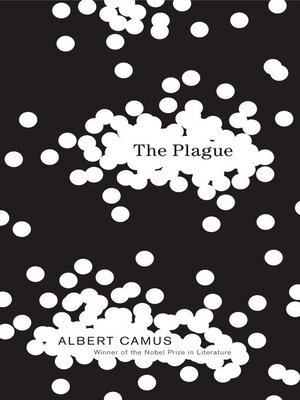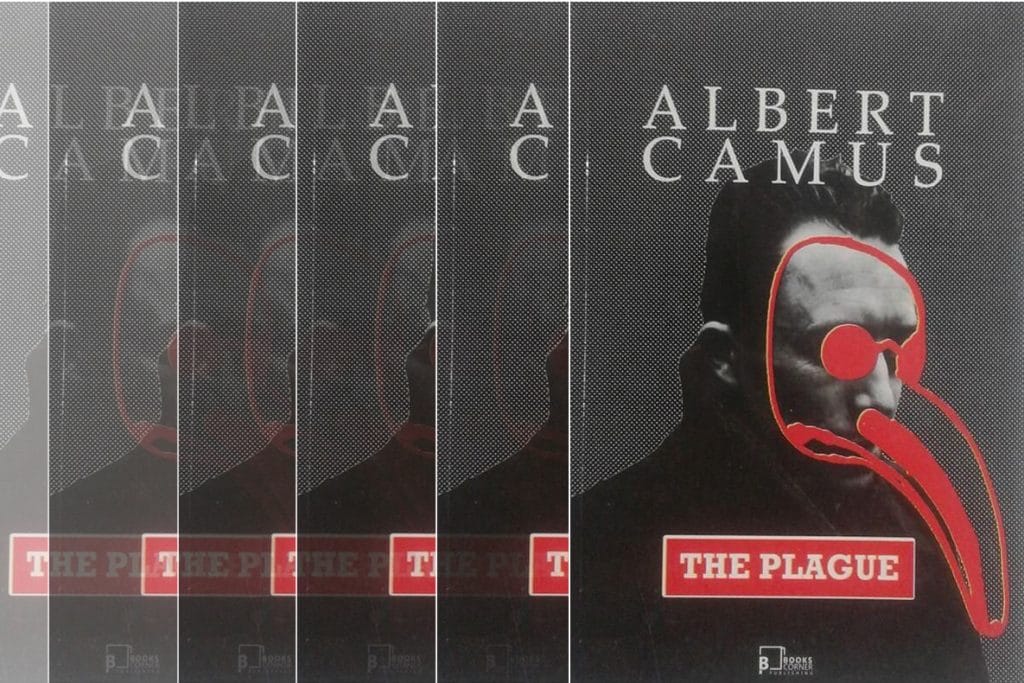When Albert Camus’ novel “The Plague” was published, many saw it as an allegory for the Nazi occupation of France during World War II.
Today, the book may strike a different chord, and that’s a big part of why Northern Arizona University faculty members Gioia Woods and Julie Piering chose to make it the centerpiece of a virtual book club they will host this fall.
“It’s a beautifully written novel that asks us to consider what happens to individuals and groups when confronted by events they don’t want to accept, events that threaten lives and livelihoods, events that feel capricious,” said Woods, a professor of humanities in the Comparative Cultural Studies Department and a President’s Distinguished Teaching Fellow.
“The Plague” takes place in the French colonial town of Oran in the 1940s. When a viral epidemic sweeps through the town, residents are forced to confront a situation that can bring out the best and worst in them.
“Camus’ novel imagines an extraordinarily ordinary town as it grapples with a plague that brings with it quarantine and exile,” said Piering, chair of the Department of Philosophy and the Richard Wood Professor for the Teaching of Philosophy. “In addition to fear and uncertainty, Camus describes the suffering of separation, the dreary perseverance of lives adapted to the rhythm of a plague, and, in his words, a patience that leads nowhere.”
The book also confronts feelings that many may have in an era of physical distancing.
“Many people have been isolated for so long, and this collective reading experience gives our community a chance to connect with one another,” Woods said.
The virtual book club is an attempt to allow people to read something that resonates today and also break out of any feelings of isolation. Online meetings begin Sept. 24 and continue through the fall.
It will examine the book through a variety of angles, and participants will be able to join the meetings either via Zoom or Facebook Live.

“We often struggle to make sense of our present moment because of its nearness and immediacy. Collectively reading and discussing a novel such as this provides literary and philosophical distance so that we might better understand and communicate our experience,” Piering said.
“’The Plague’ is about making choices in the face of crisis,” Woods said. “We are confronted with the realities of COVID-19 just as the inhabitants of Oran are confronted by plague. How do they respond, and how should we respond? Do we choose individual desires or community well-being? One of the cool things Camus does in the novel is to remind the reader of other plagues in history—he gives us the long view, and that makes us feel less alone in a historical sense.”
And, they add, it is through works such as “The Plague” that we learn about the values society holds most dear.
“It is through the humanities that we consider what makes for a well-lived life, a beautiful existence and a community worthy of those who live in it,” Piering said. “Though these questions never lose their importance, in times of strife and uncertainty, they gain increased urgency.”
Participants who order their copy of “The Plague” from Bright Side Bookshop in downtown Flagstaff by Aug. 17 will receive a discount. Bright Side will continue to have copies of the book available until the day of the first online event, Sept. 24.
The book club is free and open to the public. More information and registration are available at the event website.
Zachary Ziegler | College of Arts & Letters




